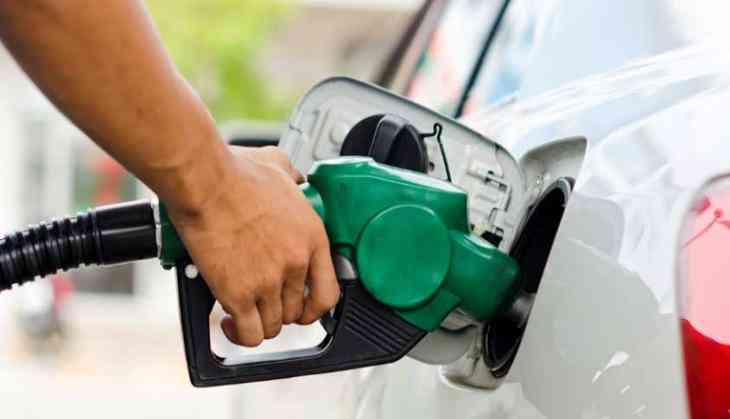
The government on Saturday increased excise duty on petrol and diesel by Rs 3 per litre each to accumulate approximately Rs 39,000 crore additional revenue as it repeated its 2014-15 act of not passing on gains surfacing from decline in international oil prices.
Retail prices of petrol and diesel will not be influenced by the tax changes as state owned oil firms regulated them against the recent slump in oil prices and the probable trend in the future, officials said.
As maintained by a notification issued by the Central Board of Indirect Taxes and Customes, special excise duty on was increased by Rs 2to Rs 8 per litre in case of diesel Rs 4 a litre from Rs 2.
Furthermore, road cess was hiked by Rs 1 per litre each on petrol and diesel Rs 10.
With this, the total amount of excise duty on petrol has mounted to Rs 22.98 per litre and on diesel to Rs 18.83.
The tax on petrol was Rs 9.48 per litre when the Modi government assumed office in 2014 and on diesel was Rs 3.56 per litre.
According to officials, the increase in excise duty will result in annual increase of government revenues by more or less Rs 39,000 crore. The gains during the remaining three weeks of the current fiscal would be less than Rs 2,000 crore.
Petrol and diesel rates were cut by 13 paise and 16 paise respectively as oil firms adjusted the excise duty increase against the drop in prices that warrants from international rates plummeting the most since the Gulf war.
Petrol now cost Rs 69.87 per litre in Delhi and diesel Rs 62.58.
The government had between November 2014 and January 2016 hiked excise duty on petrol and diesel nine times to take away gains emerging form dropping global oil rates.
Altogether, duty on petrol rate was increased by Rs 11.77 a litre and diesel by 13.47 per litre in those 15 months that helped government’s excise mop up more than double to Rs 2,42,000 crore in 2016-17 from Rs 99,000 crore in 2014-15.
It cut excise duty by Rs 2 in October 2017 and by Rs 1.50 a year later. But it hiked excise duty by Rs 2 a litre in July 2019.
According to sources, while the benefit of reduction of crude oil prices in the first quarter of this year has significantly gone to the consumer, the Centre has taken this step of increasing duty to raise some revenue in view of a tight fiscal situation. This would help in generating the resources for development of infrastructure and other developmental items of expenditure, they said.
Benchmark crude prices have decreased by fifty per cent since January to USD 32 per barrel. In sync with this, the rates of petrol and diesel have also dropped by more than Rs 6 a litre.
Also Read: Coronavirus affect on Petrol, Diesel price: After WHO declares COVID-19 pandemic, fuel price plunges


